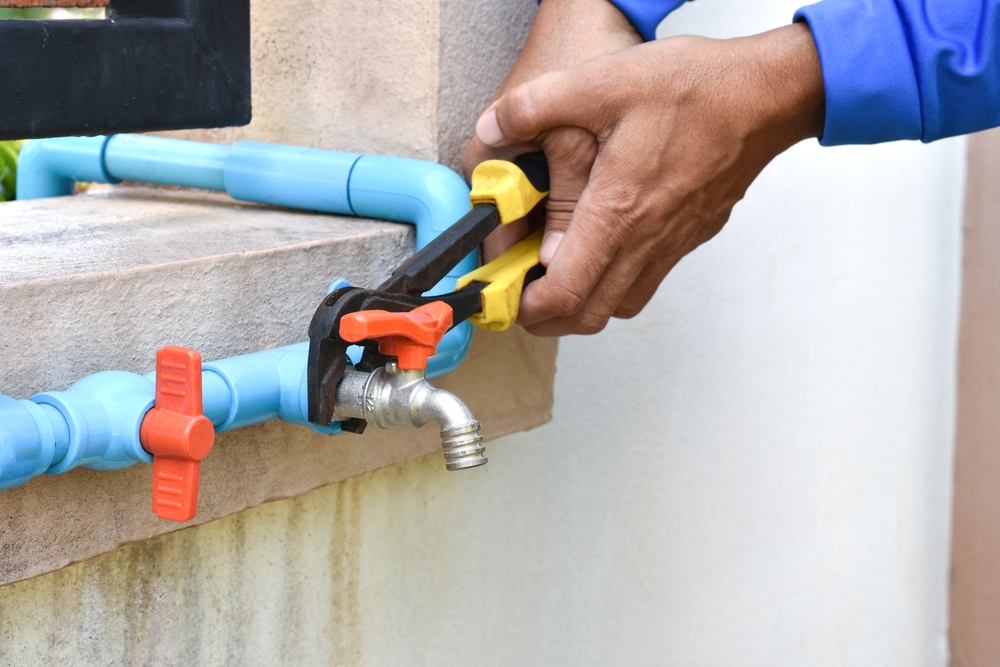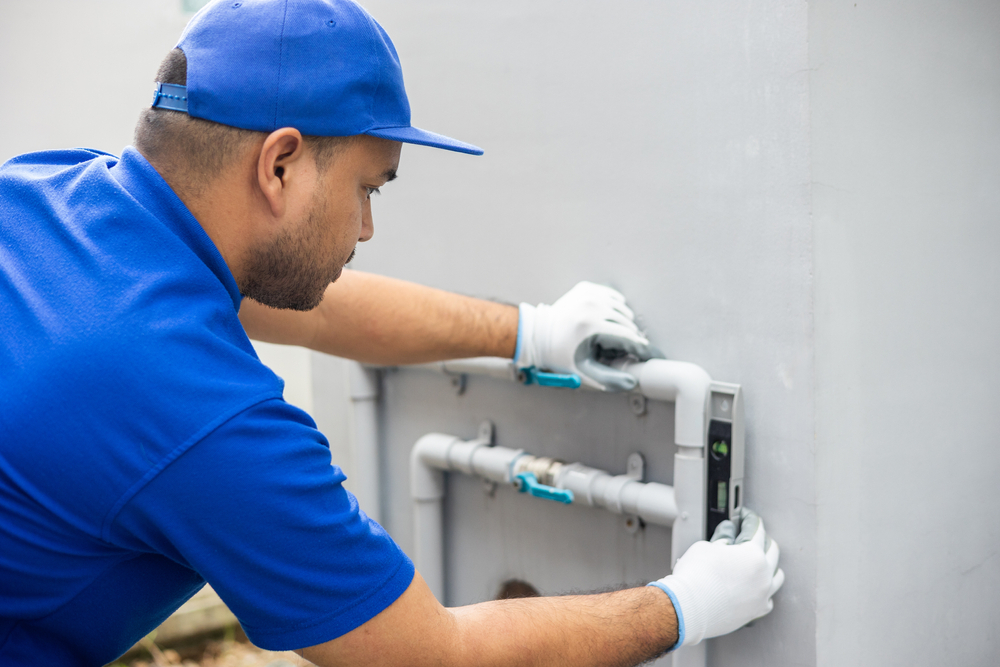The success and lifetime of any plumbing project depend on selecting the correct pipework material. Everything from water quality to system lifetime depends on the pipes a plumbing system uses. Although homeowners and builders have lots of choices, choosing the ideal material can be taxing. This guide will streamline the decision-making process and enable you to make wise decisions grounded on the particular requirements of your plumbing project.
I. Why the Right Piping Material Matters
Choosing the suitable piping material is more than simply a matter of availability or cost; it’s about guaranteeing long-term performance of your plumbing system. Bad decisions can cause expensive issues including water contamination, corrosion, and leaks.
Consequences of Using the Wrong Piping Material
- Leaks: Some materials, including PVC, can leak if subjected to great pressure or temperature fluctuations. These leaks may harm water supplies, raise utility costs, and force expensive repairs.
- Corrosion: Certain materials, including steel, are prone to rust and corrosion, which can damage water quality and cut the lifetime of the pipework system. Moreover more likely to break are corroded pipes, hence perhaps inflicting major water damage.
- Water Contamination: Negative reactivity of some materials with particular water compositions allows dangerous compounds to seep into the water source. Lead pipes, for instance, which are now outlawed in many areas, are well recognized to cause major health problems from lead poisoning.
From the beginning, selecting the correct piping material will save you time, money, and ultimately tension. It also guarantees effective operation of your plumbing system, so lowering the possibility of future replacements or repairs.

II. Factors to Consider When Choosing Piping Material
Choosing the correct pipework material requires considering several criteria. These factors will guide your choice of material depending on your particular requirements.
Water Quality and Composition
Selection of materials depends much on the quality of the water in your neighborhood. For example, your water’s extreme acidity or alkaline nature could hasten metal pipe corrosion. Under such circumstances, resistant to corrosion materials like PEX or PVC could be more suited.
Budget and Cost-Effectiveness
Though the least expensive choice seems appealing, long-term expenses should be taken into account. Less expensive materials could call for more regular repairs or replacements, therefore negating any early savings. Conversely, using better materials could help you save money on maintenance and repairs down the road.
Environmental Factors
The surroundings of your plumbing system could affect the performance of the material. Temperature extremes, for instance, can cause some materials to expand or shrink, which would create leaks or fissures. Furthermore, some soils could be corrosive to metal pipes, hence materials like CPVC or PVC are more appropriate for subterranean installations.
Future Expansions or Renovations
Think on the adaptability of the pipe material if you intend to enlarge your house or undertake further repairs. Because of their flexibility and simplicity of installation, some materials—like PEX—are simpler to handle throughout expansions.
III. Common Types of Piping Materials
For plumbing projects, there are several piping materials accessible with different benefits and restrictions. Let’s look at the most often occurring choices to guide your decision-making.
PVC (Polyvinyl Chloride)
Because of its adaptability and economy, PVC is among the most often used pipe materials. Both drainage and potable water systems find extensive application in both home and business plumbing projects.
- Advantages:
- Affordability: Because PVC is reasonably priced, projects on a tight budget often choose it.
- Versatility: From drainage systems to cold-water delivery lines, it finds usage in many different fields.
- Corrosion Resistance: PVC is perfect for places with corrosive water as unlike metal pipes it does not rust or corrode.
- Limitations:
- Vulnerability to Sunlight: Direct sunlight can cause PVC to fade, hence it should not be utilized for outdoor purposes without appropriate cover.
- Poor Heat Resistance: PVC pipes are not fit for hot water systems since they may deform or turn brittle at high temperatures.

Copper
For decades, copper has been the mainstay of plumbing as it is so durable and corrosion-resistant. Copper piping is still a dependable alternative for both domestic and business uses even if it costs more.
- Advantages:
- Durability: A long-term investment, copper pipes can last several decades even under demanding circumstances.
- Corrosion Resistance: Copper naturally resists corrosion, so maintaining the high water quality.
- Temperature Tolerance: Since copper pipes can tolerate high temperatures, hot water systems would find them perfect.
- Limitations:
- Higher Cost: The general project cost may be much raised by copper’s higher cost than materials like PEX and PVC.
- Potential for Theft: Copper pipe is valuable, hence occasionally it is targeted by thieves especially in places where it is exposed.
PEX (Cross-Linked Polyethylene)
- PEX pipes’ cost, adaptability, and simplicity of installation have helped them to become rather popular. Although it may be applied in both hot and cold water systems, it is particularly preferred for home plumbing work.
- Advantages:
- Flexibility: Easy bending and routing PEX helps to cut the requirement for fittings and speed installation.
- Ease of Installation: PEX requires less connections and is lightweight, so simplifying the installation process and lowering the labor expenses.
- Affordability: Generally less expensive than copper, PEX is a reasonably affordable choice for many households.
- Limitations:
- Insect and Rodent Damage: Insect and rodent damage can compromise PEX and lead to leaks by chewing through the material.
- UV Sensitivity: PEX should not be utilized in outdoor applications without protection as, like PVC, it is vulnerable to damage from continuous sunshine.
CPVC (Chlorinated Polyvinyl Chloride)
While CPVC is chlorinated to increase its heat resistance, it is otherwise like PVC. Particularly for hot water pipes, it is frequently seen in both domestic and commercial plumbing systems.
- Advantages:
- Affordability: Given its lower cost than copper, CPVC appeals to frugal homeowners.
- Corrosion Resistance: CPVC does not react with most water compositions and resists corrosion, same like PVC.
- Temperature Tolerance: Given CPVC’s higher temperature tolerance than PVC, it is appropriate for hot water systems.
- Limitations:
- Lower Temperature Tolerance than Metal: Although CPVC can withstand higher heat than PVC, its temperature tolerance is still less than that of metal pipes such copper.
- Potential for Cracking: Over time, especially in cold conditions, CPVC can become brittle and cause leaks and splits.
IV. Matching Material to Project Needs
The appropriate piping material for your project will rely on several elements, including the type of project, whether it involves new construction or existing plumbing, and the particular environmental conditions.
Residential vs. Commercial Plumbing Projects
Generally speaking, residential plumbing projects have distinct needs than those involving businesses. Because PEX and PVC are so reasonably priced and easy to install in homes, they are sometimes favored. For commercial installations, however, materials like copper or CPVC may be selected for their longevity and capacity to manage bigger systems.
New Construction vs. Existing Plumbing Systems
Working on new building allows you to select any material that satisfies your requirements. Dealing with existing plumbing systems, however, you have to take new material’s compatibility with the current one into account. Combining metal and plastic pipes, for instance, could need for particular fittings to stop corrosion and chemical reactions.
How to Determine the Appropriate Material
Think about the following to decide on the correct component for your project:
- Water Quality: Choose non-metallic materials like PVC, CPVC, or PEX if your area’s water is corrosive.
- Temperature Requirements: For hot water systems, select materials with better temperature tolerance—such as copper or CPVC.
- Budget Constraints: PEX and PVC provide reasonably priced alternatives free from compromise in quality if your budget is limited.

V. Additional Considerations
Apart from the fundamental characteristics of the materials, other elements could affect your decision. These factors guarantees that your pipework system satisfies all the criteria and stays operational for many years to come.
Building Codes and Regulations
Location influences building laws and regulations, which also control which materials plumbing systems can employ. Check your local building codes to be sure a material complies before choosing one. Certain rules may limit the use of particular materials in particular applications, for copper in underground installations or CPVC in domestic hot water systems.
Compatibility with Other Materials
Make sure the new piping you add to an existing system fits the other materials. For instance, a chemical interaction between copper and galvanized steel would cause corrosion if you were connecting the two metals. Dielectric unions help to separate the metals therefore stopping this reaction.
Availability and Accessibility for Repairs
Think about the material’s availability in your neighborhood and its accessibility for next repairs. If the component is difficult to locate, it could complicate repairs and later on raise expenses. Furthermore make sure your selected material is easy to maintain and can be fixed without major disturbance of your plumbing system.
Conclusion
The success of every plumbing project depends critically on the choice of piping material. It affects general performance, efficiency, and lifetime of the system. Considering elements such finances, environmental circumstances, and water quality will help you decide what best fits your particular situation.
Still, this choice should not be taken in a vacuum. See a qualified plumber to be sure you chose the best material for your project. Professionals can also assist you prevent expensive blunders by guiding you through local building code and regulation compliance.
Plumbing Services CA
https://maps.app.goo.gl/31Yt4rhDrainzNJ4A
(279) 203-0765
https://plumbingservicesca.com/
